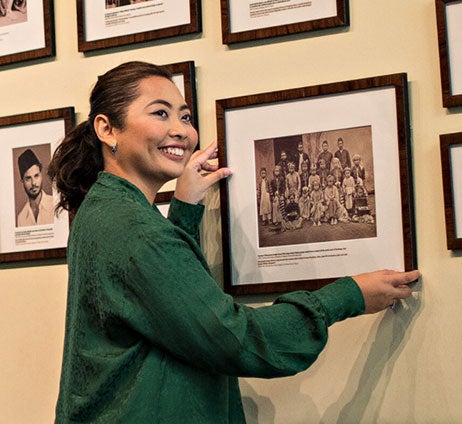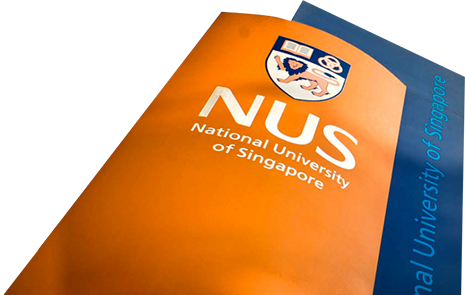Ways to Give
Your generous support will help to make medical education more accessible to the best and brightest from all levels of society, with diverse backgrounds.
The School’s undergraduate curriculum, developed and taught by faculty comprising distinguished clinicians as well as scientists, provides students with a solid foundation in the medical sciences. In keeping with its age-old vision of educating and producing compassionate and competent healthcare professionals, emphasis is placed on the inculcation and development of patient empathy in students.

On 3 July 1905, following a public appeal for funds led by local businessman and philanthropist Tan Jiak Kim, the Straits Settlements and Federated Malay States Government Medical School was established. In 1912, an endowment of $120,000 from the King Edward VII Memorial Fund saw the institution renamed the King Edward VII Medical School. Nine years later, it became the King Edward VII College of Medicine to reflect its academic standing as a university entity.
In October 1949, the College amalgamated with Raffles College to form the University of Malaya, which became known as the Faculty of Medicine. On 1 January 1962, the University of Singapore was founded. It then merged with Nanyang University to form the National University of Singapore (NUS) on 8 August 1980. In 1985, the Faculty of Medicine became part of the NUS campus at Kent Ridge.
In 2005, the National University of Singapore (NUS) School of Medicine celebrated its Centennial. It was renamed the Yong Loo Lin School of Medicine in acknowledgement of a generous gift from the Yong Loo Lin Trust. In 2008, the School joined the NUS Faculty of Dentistry and the National University Hospital to form the National University Health System (NUHS). The academic health system aims to exploit synergies, explore new models of care, develop multidisciplinary research and educational programmes that enrich faculty and students and benefit patients.
In 2005, the National University of Singapore (NUS) School of Medicine marked its Centennial Year, which was underlined with a gift of S$100 million from the Yong Loo Lin Trust. In honour and recognition of this transformational act of philanthropy, the School was re-named the Yong Loo Lin School of Medicine.
The gift enabled the School to realise its goal of strengthening its clinical research work and linking this more closely to the education and training of medical and nursing students. This was done through the development of two key areas, namely infrastructure and the NUS Medicine talent base.
There was significant upgrading of physical infrastructure and facilities. An example is the Centre for Translational Medicine, the School’s flagship building featuring state-of-the-art research and teaching facilities, and which is home to some of the most competitive research programmes.
A portion of the gift was also channelled into developing the School’s talent base by providing the faculty resources to pursue work that would advance medical care.


Kuala Lumpur-born Dr Yong Loo Lin graduated as a medical doctor from the University of Hong Kong in 1923. He established himself as a successful businessman in Hong Kong and was a strong advocate of education. Dr Yong passed away in 1959 and the Yong Loo Lin Trust was established by his family. The Trust has since made significant contributions in the name of medicine.
In 1996, S$2.5 million was given to establish the Yong Loo Lin Professorship in Medical Oncology. In 2004, an additional S$1 million was used to convert the Professorship from a visiting to a full-time Chair. In 2003, the Trust gave S$25 million to NUS for a music conservatory, which has been renamed the Yong Siew Toh Conservatory of Music after Dr Yong’s daughter, a music teacher.
The School received a further S$25 million from the Yong Loo Lin Trust to work with the National University Cancer Institute, Singapore (NCIS) in 2013 to develop new models of cancer care through research and education. This gift is meant for the development of better ways to prevent, screen, diagnose, and treat cancer. In appreciation and recognition of the Trust’s latest gift, the NCIS facility at the hospital’s NUH Medical Centre was named the Yong Siew Yoon Wing, the sister of the late Yong Siew Toh.
Your generous support will help to make medical education more accessible to the best and brightest from all levels of society, with diverse backgrounds.
